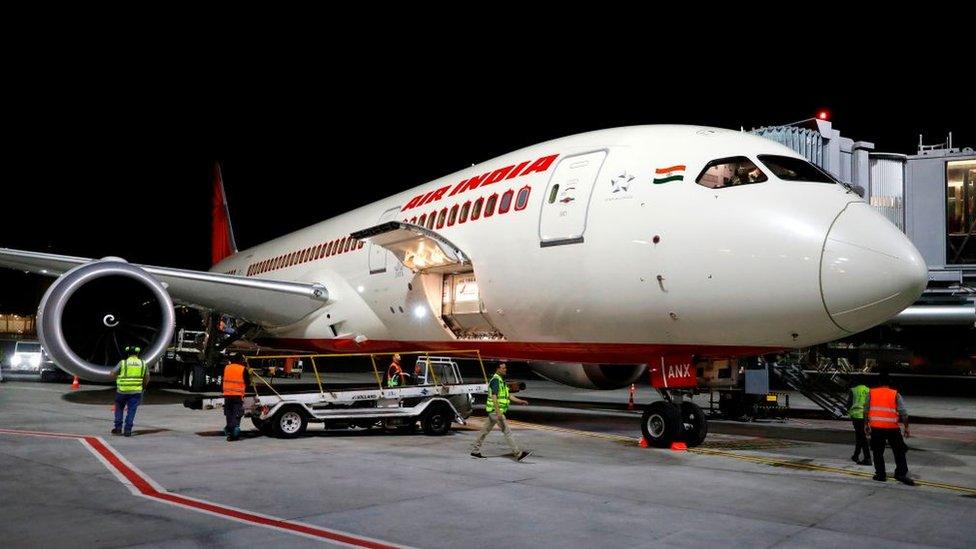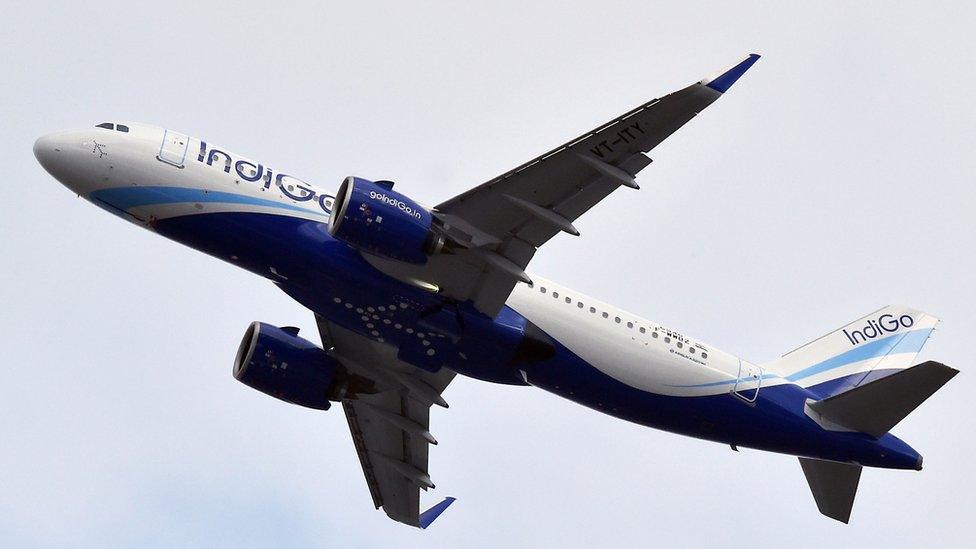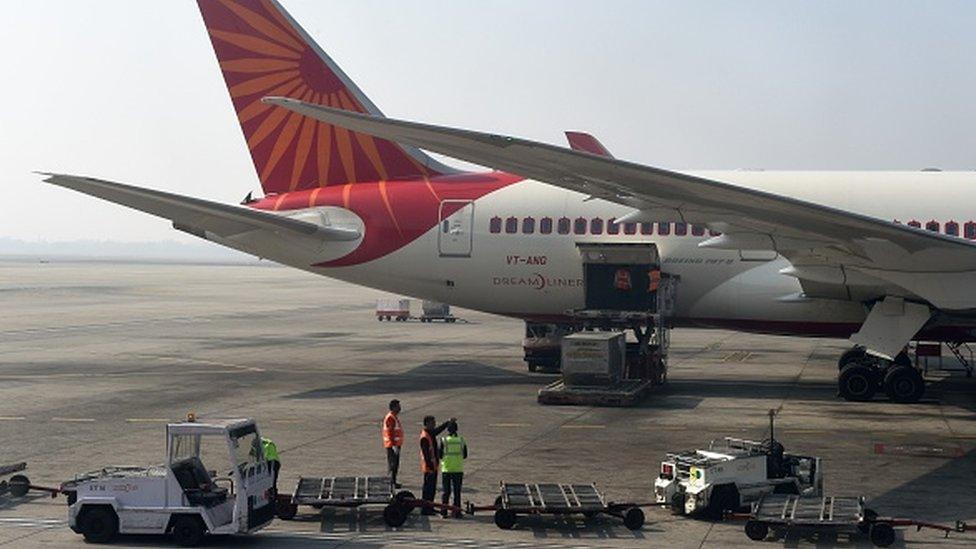Air India sale: Who'll buy the debt-laden carrier?
- Published

India's cabinet approved plans to privatise Air India in June last year
India's government has decided to sell a controlling stake in the loss-making national carrier, Air India.
It is putting 76% of the business up for sale in what would be India's most high profile asset sale in decades.
Air India has relied on taxpayer-funded bailouts to stay operational - and the new buyer would take on about $5bn (£3.6bn) of debt.
If privatisation goes ahead, it will be a boost to Prime Minister Narendra Modi's claims to be a reformist leader.
But it is not a done deal. Such plans have been abandoned before, and unions have threatened wide-ranging protests if ministers push ahead this time.
Once the country's only airline, Air India has lost market share to new entrants and suffered from a reputation for poor service and cancelled flights.
It has not turned a profit since 2007 - but with India seeing passenger growth of around 20% per year and analysts saying the Indian market is vastly underserved - it could still be a tempting prospect for would-be buyers.
What's up for sale?
According to documents released by the government,, external Air India will be put up for sale as four different entities.
76% of the main airline business - made up of Air India, its low-cost arm Air India Express and subsidiary AISATS
Alliance Air - the carrier's regional arm
Air India Air Transport Services
Air India Engineering Services Ltd
Bidders are allowed to make separate offers for the four divisions - or for a combination of them.
Who'll buy it?
International routes are the most lucrative part of the Air India business, with slots at major international airports including London Heathrow and New York JFK.
IndiGo, India's biggest airline, has said that it would like to carve out Air India's international passenger airline operations - to add to the seven international destinations it already flies to.
But that is not an option currently on the table - and Indigo said it would also "evaluate" the option of taking on all of the airline business and see if it was "economically feasible for us to go down that path".

IndiGo would like to buy Air India's international operations but hasn't ruled out a wider bid.
"At the end of the day, this exercise is not about becoming bigger for the sake of being bigger - it is all about profitable growth," co-founder Rahul Bhatia said.
But he was clear IndiGo was not looking at buying all of Air India's businesses and subsidiaries.
"In our view, that would be a herculean task which would at best be a very challenging proposition and at worst an impossible task, unless an organisation is willing to fund large losses for a very long time," Mr Bhatia said.
Another potential buyer is Vistara - the joint venture airline run between India's Tata Group and Singapore Airlines.
Earlier this month, Singapore Airlines general manager David Lim told the BBC that it was "open" to an Air India bid.
"We haven't closed the doors and when that happens we will look at it", he said

Jet Airways is another potential bidder
Indian rules state that majority ownership of any national airline needs to be with an Indian national. So while international carriers can make a bid - the biggest stake they can hold is 49%.
Jet Airways, another Indian carrier, is also likely to take a serious look at an offer - perhaps in partnership with an international carrier. Media reports suggest Air France and Delta may be interested.
The government has waived some of the criteria for existing Indian airline operators to make bids - relating to net worth and recent profitability - so long as they bid as part of a consortium.
Qatar Airways was another international airline linked with buying a stake in Air India, but it has since denied any interest.
Any caveats?
The eventual buyer of Air India may eventually have to list the airline on the stock exchange - which would be a clear incentive to make it profitable within a fixed time frame.
It is likely that at this point, the government would then sell its remaining 24% in the business.
The buyer will be taking on about $5bn of debt. However, this is only about half of what the airline owes. So in effect the buyer is getting a smaller proportion of the debt than it might expect for a 76% stake - which might make things more appealing.
What's the time line?
Would-be bidders have until 14 May to make initial proposals.
Shortlisted bidders will be informed by 28 May.
- Published28 June 2017

- Published4 March 2017

- Published16 January 2017
